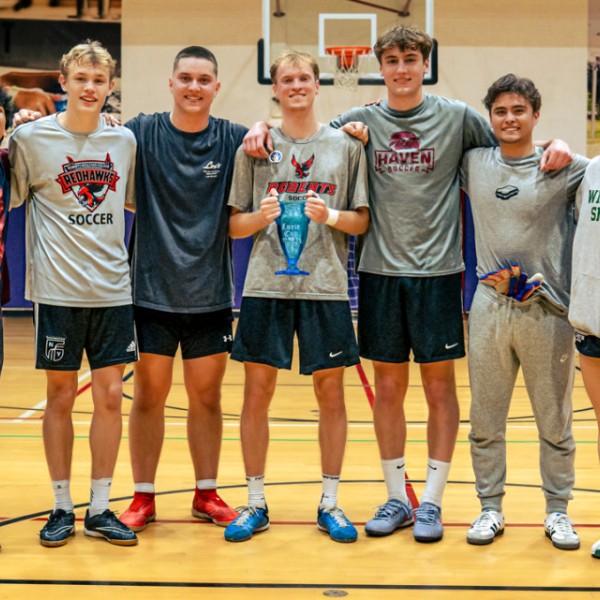Hilary Faxon, MS ’17, Ph.D. ’20 investigates the intersections between environment, development, and technology with a focus on social justice in the Global South. Now a Ciriacy-Wantrup Postdoctoral Fellow at the University of California Berkeley, she recently earned the J. Warren Nystrom Award from the American Association of Geographers for her groundbreaking work on digital connections in rural Myanmar. We sat down with her to discuss her research, interests, and how her Cornell degrees prepared her to push boundaries in global development.
What are the major global challenges you’re confronting in your work?
From indigenous Land Back movements in North America to the struggle for territorial sovereignty taking place right now in Ukraine, land lies at the heart of resurgent authoritarianism, escalating climate crisis, and the possibility of racial reparation. At the same time, classic questions of resource distribution and use are increasingly mediated through digital devices—smartphones, online platforms, and algorithms—with consequences for equity and sustainability. My scholarship tackles these interconnected issues of environment, development and technology with a focus on social justice in the Global South. Much of my work is grounded in Myanmar, an agrarian nation with rich natural resources, a recent history of democratic reform and rapid digitization, and an ongoing revolution taking place in the wake of last year’s military coup. The specific challenges that Myanmar and its people face today provide a window onto broader questions crucial to the study and practices of global development.
You recently won the top early-career prize from the American Association of Geographers for a paper that comes out of your Cornell dissertation research into the ‘digital village’. Could you tell us about this paper?
The paper explores the phenomenon of digital connection not from Silicon Valley, where stories of Big Tech are so often set, but rather from the paddy fields of Myanmar’s rural Northwest. I show how rice farmers, migrant workers and grassroots activists harness Facebook to support livelihoods, sustain communities, and mobilize politically. Bringing together the scholarly traditions of digital geography and agrarian studies, I theorize the digital village as a networked social space in which online practices emerge from existing agrarian relations to reconfigure the strategies of economic survival, the landscapes of home, and the tactics of politics. This concept is important because it moves beyond dominant notions such as the ‘digital divide,’ which reinforces longstanding stereotypes of backwardness, and calls our attention to the creative adaptions that shape both the internet itself and contemporary rural life.
How did the Ph.D. in Development Sociology at Cornell prepare you for this research and the kind of work you’re doing now?
What I’m most proud of in the paper, and what the judges noted in the award, is its combination of theoretical innovation and empirical grounding. This is simultaneously an article that pushes scholarly debate and that evokes the sunflowers and solar panels of rural Myanmar. This commitment to embedded research with global reach was really emphasized in my training at Cornell, both in what is now the Department of Global Development and in the Southeast Asia Program.
My Ph.D. supervisor Wendy Wolford—who also won the Nystrom Award back in the day, I should say!—not only taught me a thing or two about land but also influenced the way I do my work, in particular the value that I place on long-term ethnographic research as a source of theory. My ongoing collaboration with Jenny Goldstein on the political ecologies of data in Southeast Asia was also important for initiating my thinking about the when, where and how digital technologies make a difference to larger processes of socioenvironmental change. The digital village paper serves as a bridge between, on one hand, the questions about the relationship between conservation and democracy that brought me to graduate school, and, on the other hand, the questions about emancipatory and authoritarian potential of technologies that animate my postdoctoral work at Berkeley. The training I received in critical development studies has proved equally powerful for both projects.
Tell us about your current book project on Myanmar.
My book examines environmental justice, land governance and state-making from the vantage point of small farmers and grassroots activists struggling for land during Myanmar’s democratic turn. During Myanmar’s attempted democratic transition in the 2010s, land was not only the basis of biodiversity, livelihoods and national development, but also a critical domain for negotiating citizenship after half a century of authoritarian violence and racialized exclusion.
The book, Surviving the State: Struggles for Land and Democracy in Myanmar, draws on 26 months of participant observation, over 150 interviews, and three Participatory Action Research projects to provide an intimate ethnography of agrarian and political change. Turning on its head a rich tradition of scholarship that posits land as a tool for state-making or an outlet for state-escape, I argue that land is key to what I call surviving the state, a set of socioecological practices forged through cultivation and dispossession as well as the gendered work of care and connection. By centering the perspectives of small farmers and grassroots activists, I show how embodied histories of state violence shaped ecologies and communities, ultimately undermining reforms that aimed to redistribute land and recognize ethnic territory during the decade of democracy.
The book’s publication is a ways off yet, but I’ve done much of this thinking in conversation with a new generation of Burma Studies scholars working on the relationships between natural resources, violence, and power in Myanmar – our collection on resource frontiers is hot off the press.
What advice would you give to a young researcher in your field?
Spend as much time building relationships and collecting data in your field site as you can. Be kind and curious. This is the foundation of your scholarship.






